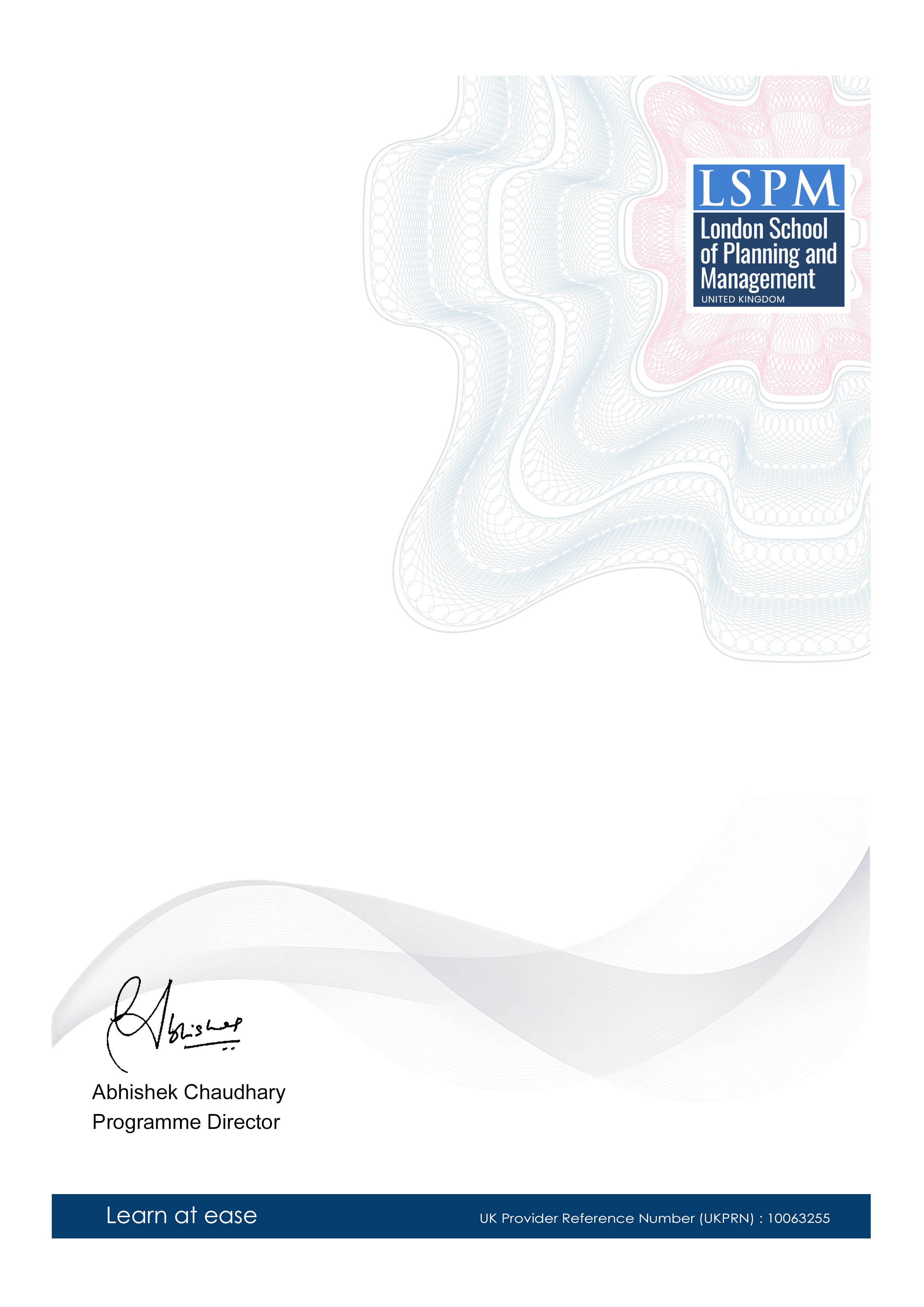Postgraduate Certificate in Environmental Impact Assessment for Plastics Industry
-- viewing nowThe Postgraduate Certificate in Environmental Impact Assessment for Plastics Industry is a crucial course that addresses the growing need for sustainable practices in the plastics industry. This certificate course highlights the importance of evaluating and minimizing the environmental impact of plastics manufacturing and use, thereby responding to the global call for sustainable development.
6,228+
Students enrolled
GBP £ 149
GBP £ 215
Save 44% with our special offer
About this course
100% online
Learn from anywhere
Shareable certificate
Add to your LinkedIn profile
2 months to complete
at 2-3 hours a week
Start anytime
No waiting period
Course details
• Principles of Environmental Impact Assessment (EIA): An introduction to EIA, its importance, and the principles that guide it. This unit will cover the history, purpose, and benefits of EIA, as well as the key steps involved in the EIA process.
• Plastics Industry Overview: An overview of the plastics industry, including its history, growth, and current state. This unit will cover the types of plastics produced, their uses, and the environmental impact of plastic production and disposal.
• EIA Methodologies for Plastics Industry: An in-depth examination of the EIA methodologies used in the plastics industry. This unit will cover the different methods used to assess the environmental impact of plastic production, use, and disposal, including life cycle assessment (LCA) and risk assessment.
• Regulations and Standards for Plastics EIA: A review of the regulations and standards that govern EIA in the plastics industry. This unit will cover the international, national, and regional regulations and standards that impact the EIA process in the plastics industry.
• Stakeholder Engagement in Plastics EIA: An exploration of the role of stakeholder engagement in the EIA process for the plastics industry. This unit will cover the importance of involving stakeholders, such as local communities, environmental groups, and industry representatives, in the EIA process.
• EIA Reporting and Communication for Plastics Industry: An examination of the reporting and communication requirements for EIA in the plastics industry. This unit will cover the best practices for reporting EIA findings and communicating them to stakeholders.
• EIA Implementation and Monitoring in Plastics Industry: A review of the implementation and monitoring processes for EIA in the plastics industry. This unit will cover the steps involved in implementing EIA findings, as well as the methods used to monitor and evaluate the effectiveness of
Career path
Entry requirements
- Basic understanding of the subject matter
- Proficiency in English language
- Computer and internet access
- Basic computer skills
- Dedication to complete the course
No prior formal qualifications required. Course designed for accessibility.
Course status
This course provides practical knowledge and skills for professional development. It is:
- Not accredited by a recognized body
- Not regulated by an authorized institution
- Complementary to formal qualifications
You'll receive a certificate of completion upon successfully finishing the course.
Why people choose us for their career
Loading reviews...
Frequently Asked Questions
Course fee
- 3-4 hours per week
- Early certificate delivery
- Open enrollment - start anytime
- 2-3 hours per week
- Regular certificate delivery
- Open enrollment - start anytime
- Full course access
- Digital certificate
- Course materials
Get course information
Earn a career certificate

